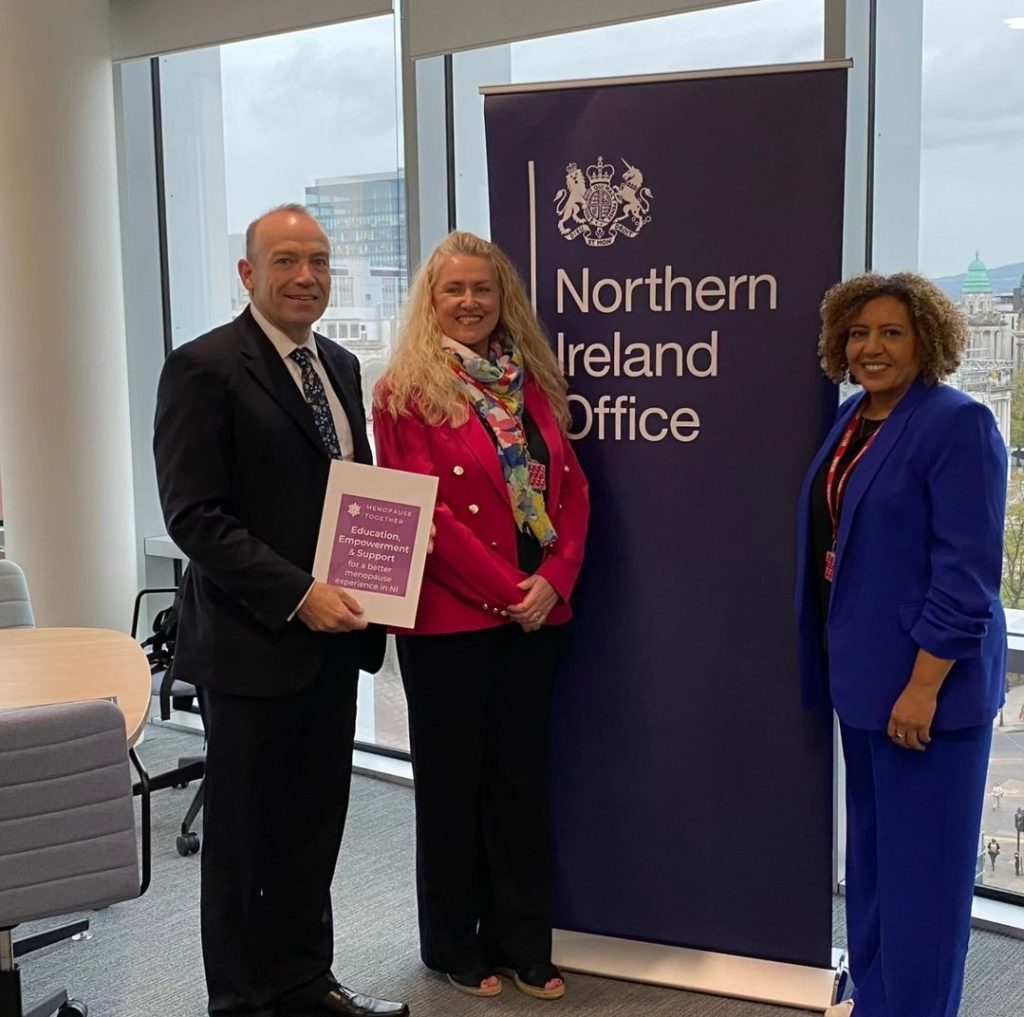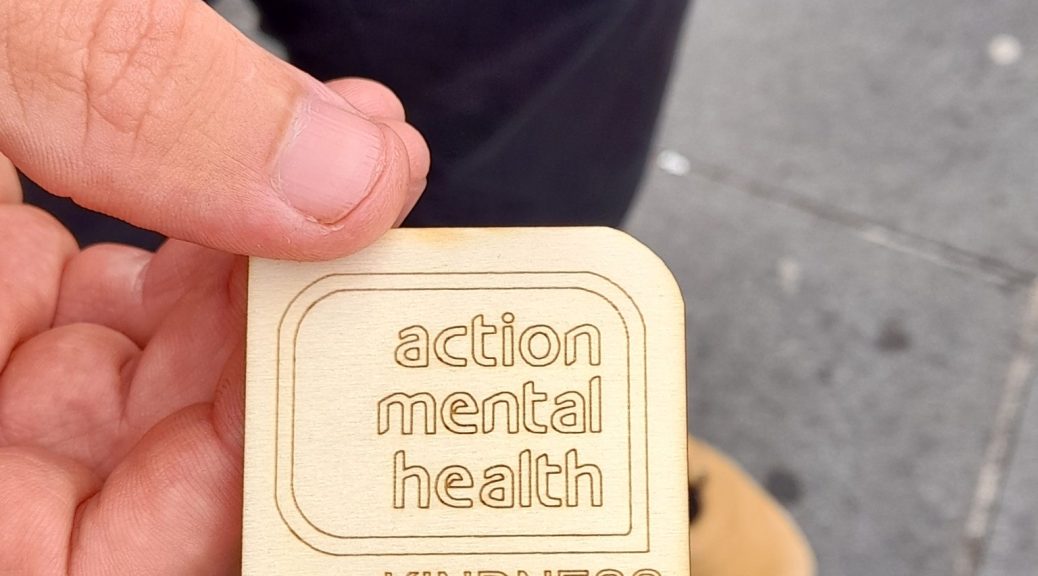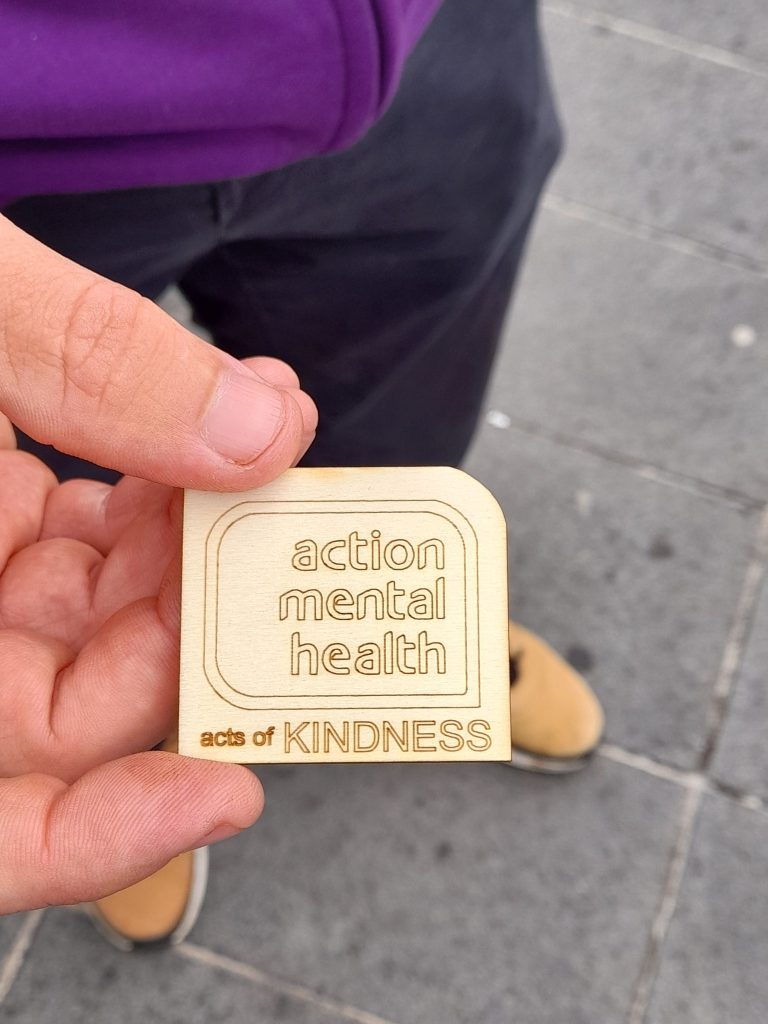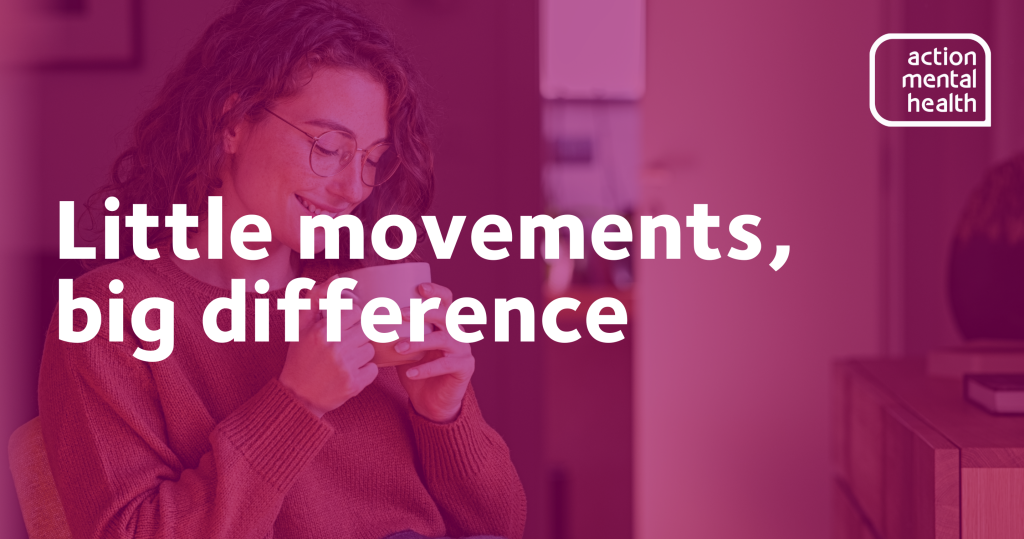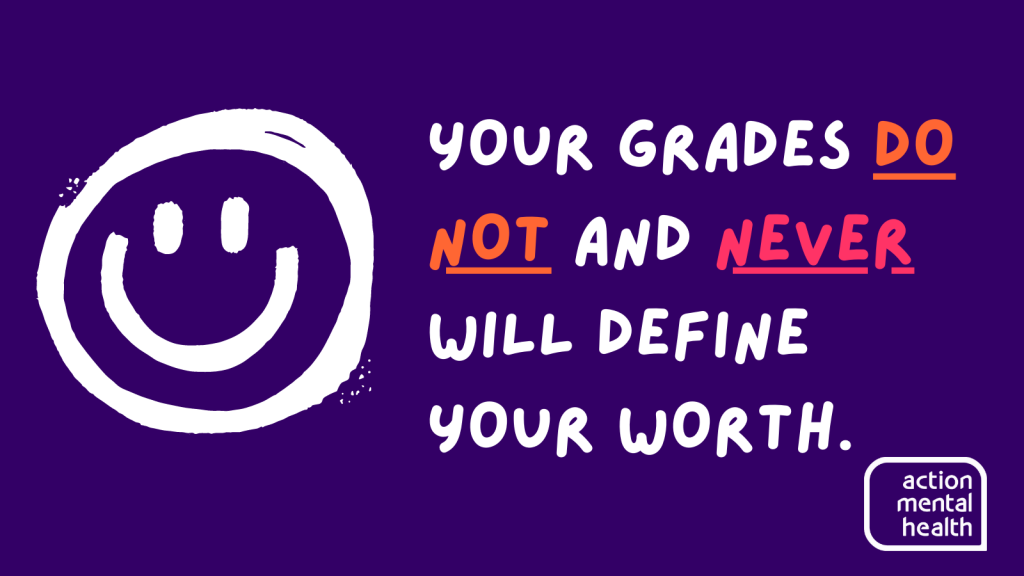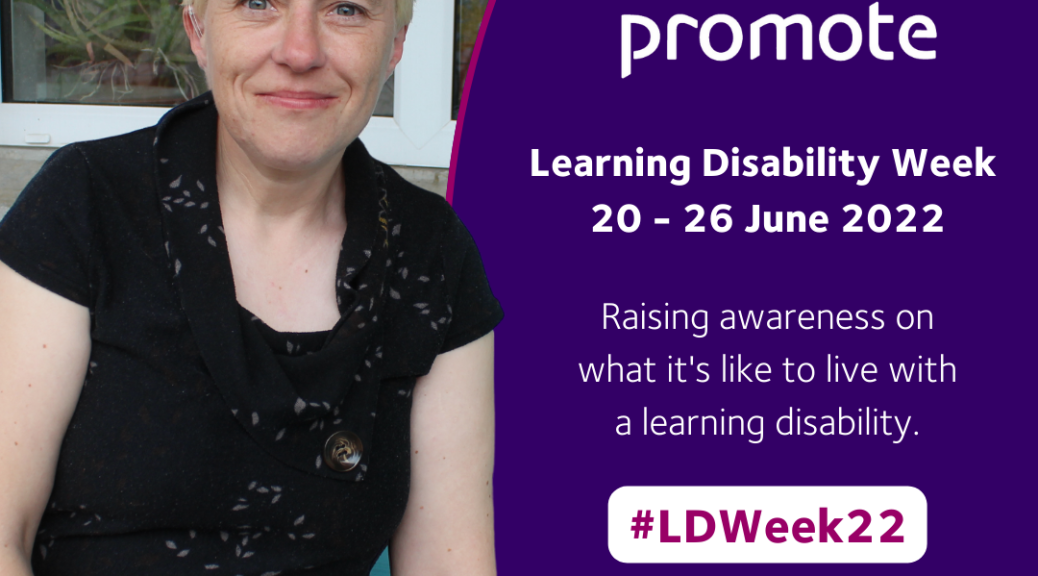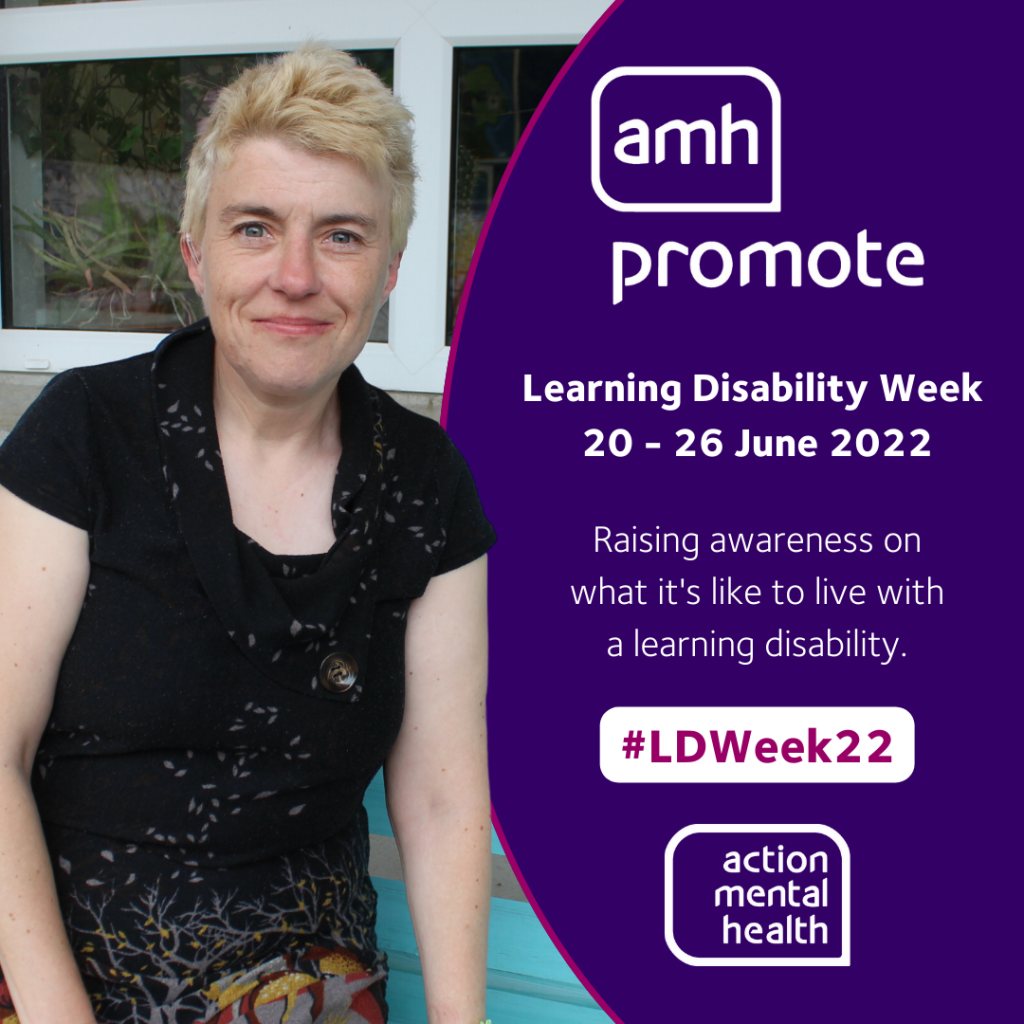October is Menopause Awareness Month, with October 18 specifically being World Menopause Day – all of which is focused on tackling the stigma surrounding menopause and creating conversation about this important transitional stage in women’s lives. With mental health symptoms often a significant part of the perimenopause/menopause journey, we’ve been speaking to women who are raising awareness about this, as well as providing support and signposting to services across Northern Ireland.
Having already featured an interview with one of Northern Ireland’s first accredited menopause specialists, Dr Siobhan Kirk, our second blog focuses on Northern Ireland’s first menopause charity, Menopause Together. Established by Roisin Hillman from west Belfast and Fiona Brown from Magherafelt, the charity was created to provide a space where women experiencing the menopause could find the information and support they needed. Initially beginning as a private Facebook group – which is still a thriving social space of more than 10K members – Menopause Together officially launched as a charity at Stormont on October 17, 2023.
“For us as a charity, it’s about making sure women are getting the support and the knowledge that they need – and that we’re able to sit around the table with the different government departments,” said Roisin. “Women need this support and at every meeting so far, the door has been open, so it’s been very positive.
“The menopause isn’t just a health issue – it affects every single walk of life. We’ve now met with all the departments, including the health committee and have come up with four key asks:
- Mandatory menopause training for all GPs.
- The development of a fully funded Women’s Health Strategy which makes provision for services and support for menopausal women across Northern Ireland.
- Removing barriers to prescribing for menopausal symptoms – for example, if a woman goes private and the consultant gives her a prescription, that the GP fulfills that prescription.
- For research to be conducted into the broader benefits of prescribing testosterone for women.”
Roisin’s story
Having started Menopause Together in July 2021, the journey of what has become a thriving charity is tied in with Roisin’s own experience of the menopause. Following a hysterectomy in May 2021, she had to come off the HRT she’d been on to manage her perimenopausal symptoms. Told that she would have to wait some weeks post-surgery to get back onto HRT, Roisin felt she had no choice but to put up with the physical and mental symptoms that HRT had, for her, successfully managed – alongside now recovering from major surgery.
“By week two, the night sweats and the anxiety and mood swings were all back,” she said. “I had written a post on an app to ask if there was anything I could take while on blood-thinner and someone said ‘you could have been on transdermal HRT all along.’ To say I was angry was an understatement. I did some research and discovered that it’s a gel you rub onto the skin.”
While HRT may not work for everyone, because Roisin had previously benefitted from it, she rang her GP to request the transdermal version, which she duly received. She said that “within two days, the night sweats had stopped and everything was back to normal.”
The theme for this year’s Menopause Awareness Day is Menopause Hormone Therapy, known as HRT (Hormone Replacement Therapy) in the UK. For Roisin, HRT has been a great help in managing her symptoms, although it may, of course, not be the solution for everyone.
“When I was 46/47 and trying to get HRT I probably went to my GP about seven times,” she said. “I had real itchy skin and sore joints, especially my ankles. It felt like I was 90 years old – I wasn’t able to stand up. Menopause wasn’t even something on my radar. I told a friend about the itchiness and she said, ‘could you be menopausal?’”
Recovering from her operation in June 2021, Roisin spotted an online survey about the menopause which she went to fill in, only to find that it wasn’t applicable to Northern Ireland. Frustrated about this, she subsequently got chatting to another woman from Northern Ireland on social media and the idea for a menopause Facebook group arose.
“I thought about what everybody would think about me,” said Roisin. “I had all the self-doubt but I thought, ‘I’m doing it’. In July 2021, I started Menopause Together. To date, we have just over 10,000 people on the Facebook group. It just went from strength to strength.”
As the group grew, Roisin realised there was a need for a more joined-up approach regarding menopause services and related support, as “nobody really knew what everyone was doing.” This inspired her to create Northern Ireland’s very first menopause conference, bringing together menopause experts to speak to local women and share knowledge, as well as signposting to various services.
“I contacted Dr Siobhan Kirk, along with a yoga teacher I knew and a GP,” said Roisin. “Marie-Louise Connelly then asked if we needed a hand. We got a plan together and she became a number one supporter of the group. It was just absolutely fantastic. I also got in touch with Robin Swann as a keynote speaker. The room was full. That was Northern Ireland’s first menopause conference.”
Creating NI’s first menopause charity
Following the conference, Roisin was subsequently contacted by Fiona Brown, who asked if she could offer any help with what was fast becoming a dedicated menopause mission. The pair subsequently met in November and began having conversations around starting an official menopause charity. Many other women had also been in touch with Roisin after the conference, requesting something similar for their local communities, so it was clear there was huge demand for events providing information about the menopause.
Indeed, Roisin began delivering awareness sessions in January 2023 alongside her full and part-time job commitments – the first one being in the Foyle area. A key element for her was in keeping costs low, so that anyone could access the sessions without financial barriers.
“I know that £30 could be meals for a week for someone,” she said. “So, I’m very aware that it’s very important to keep costs as low as possible. That was one of the factors for starting a charity – so any awareness events could be free. I didn’t want women not being able to go. We needed women from every walk of life to feel they could come along and to get access to the information they needed.”
Having spoken with many women since launching the charity and delivering awarenss sessions, Roisin has heard lots of first-hand accounts about how menopause has affected women’s lives. This information, combined with both her own and Fiona’s experience with menopause, has ultimately led them to their current position of having four key ‘asks’ for government.
“When a woman is 45 it doesn’t matter who you are, you’re perimenopausal,” she said. “So, if you’re 45 and you’re saying to your GP, ‘my mood is low and I don’t feel I can go on anymore,’ the GP should have training to know that it’s more than likely that you’re perimenopausal.
“At work, women often reduce their hours because of menopause symptoms. I had a hysterectomy in May and in November I started a new job, so I was learning a whole new system. Even though I was on HRT, however, my cognitive thinking was shot. It was absolutely terrible and I thought I might have to leave my job.
“We have to talk to the ministers about that – about the drain on work and the economy. If a woman is having menopausal symptoms, then it affects everybody. Every male has a mother or a sister or a partner… They will have someone in their lives who is potentially perimenopausal or menopausal.
“We’re holding another conference on October 13 – with amazing speakers and goody bags – so we hope that as many people as possible come along to that. We have to bring everyone along on this journey. Talking about the menopause needs to become the norm.”
Resources:
- Menopause Together: https://menopausetogether.org/
- NHS: https://www.nhs.uk/conditions/menopause/
- British Menopause Society: https://thebms.org.uk/
- Women’s Health Concern: https://www.womens-health-concern.org/
- International Menopause Society: https://www.imsociety.org/?v=7885444af42e
- Dr Siobhan Kirk: https://www.drsiobhankirk.com/
- Menopause NI: https://menopauseni.com/








